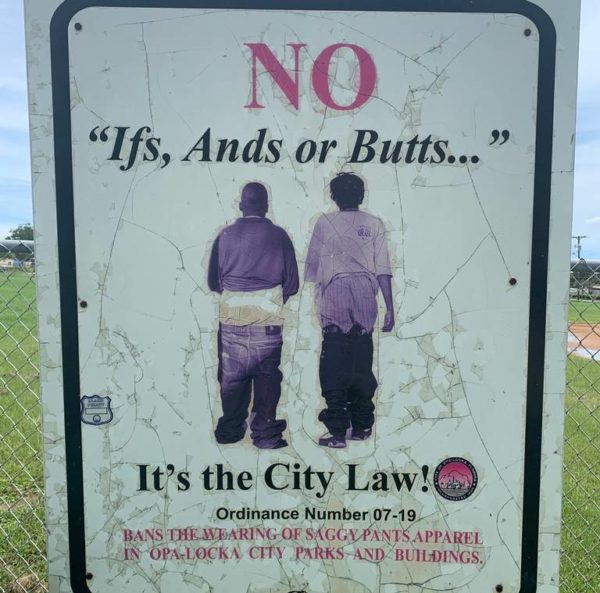A Florida city in Miami-Dade County is set to repeal a 13-year ban on saggy pants that has been described by some as discriminatory.
Last week, four Opa-locka commissioners voted to lift the ban, while one opposed. In order for the repeal to be official, the vote must be approved at another commission meeting.
The ban has been in place in the city since 2007, and initially banned people from wearing saggy pants that reveal undergarments at parks and city buildings before it was expanded to include all public spaces. A 2013 ordinance said women could also be cited for breaching the ban, and doubled fines to $500 dollars. Offenders could also face up to 25 hours of community service.
The commissioners voted on Wednesday to remove both the 2007 legislation and 2013 ordinance.
“Since its inception, this law disproportionately affected certain segments of our population, including Black and brown men and women,” the city said in a statement. “The Commission agreed to repeal the law opting for a less aggressive approach of educating our constituents to encourage proper dress.”
Signs posted around the city depict images of young Black men with sagging pants, captioned by the phrase: “No ifs, ands or butts … It’s the city law!” along with a short explanation of the ordinance.

Alvin Burke, 66, the only commissioner who opposed repealing the legislation said the law was not intended “to target our young black men, but to uplift our young black men.”
“As of today, we still have our young men walking around with saggy, baggy pants,” said Burke, 66, who was one of four new city officials elected in 2018. “If y’all see fit to do away with it and just continue to let our young black men walk around into our buildings like that … then so be it.”
The American Civil Liberties Union of Florida said in 2007 that the legislation was a “ridiculous waste of public resources” that would “impose overly harsh penalties for victimless behavior” and single out Black Americans.
The ACLU welcomed the decision to repeal the legislation, telling the Miami Herald: “We’re glad the commissioners voted to repeal this ordinance. Our local leaders should be looking at ways to end discriminatory practices, not embolden them.”
Black people make up the largest ethnic group in Opa-locka. It is not clear how the ban was enforced over the past 13 years or how many of the people cited for violating the law were Black. The ban was not consistently enforced.
“In Opa-locka, we’re a [predominantly] African-American and Hispanic community. When you pass laws like that, they can seem predatory if not carefully implemented,” said Chris Davis, Opa-locka vice mayor.
He also cited the racial climate in the aftermath of police killings as a reason for the reversal.
“What better climate to do it in than the one that’s going on around the country centered on police reform,” said Davis, “and just looking at ways that we can make our public services more equitable.”


